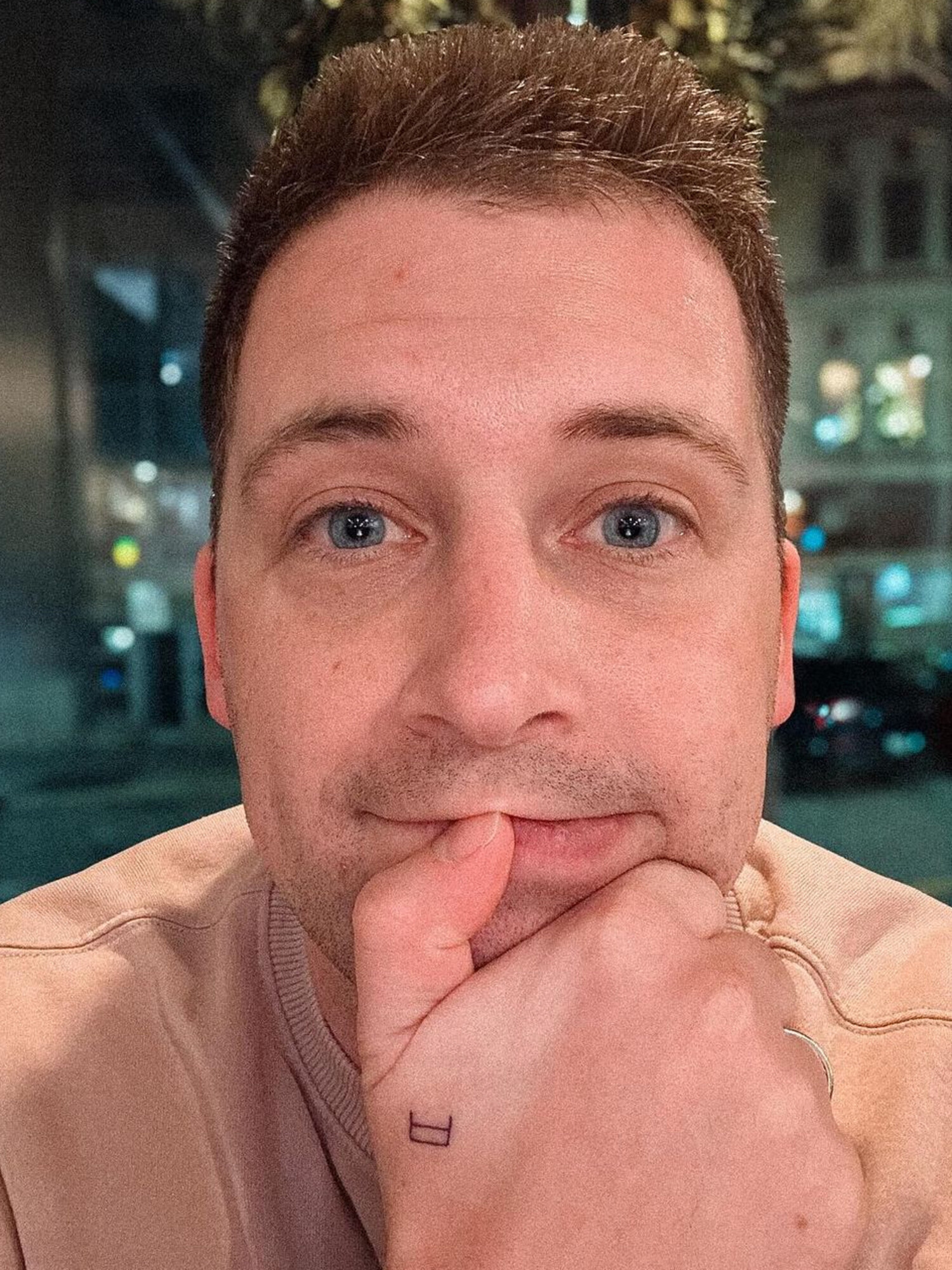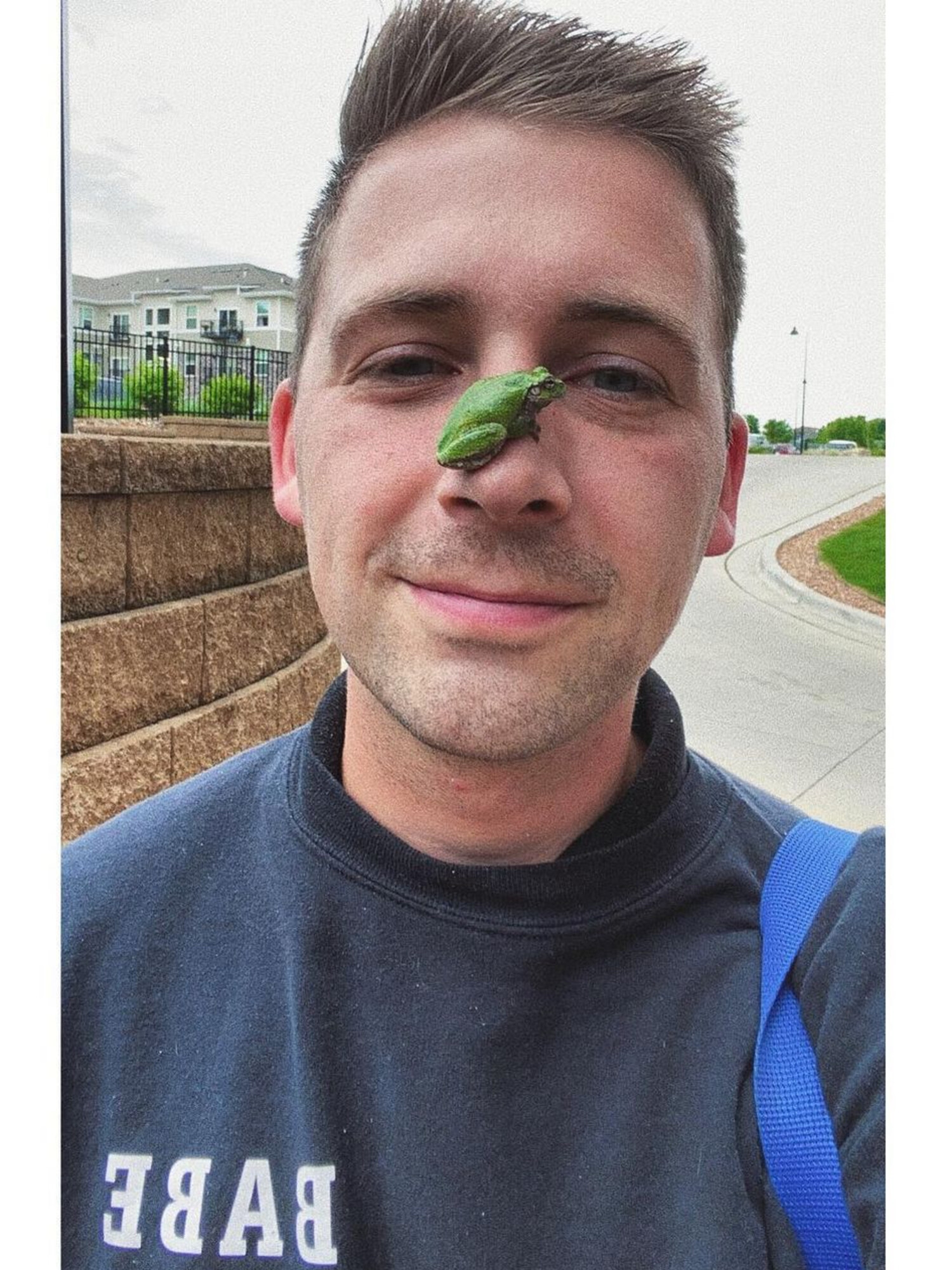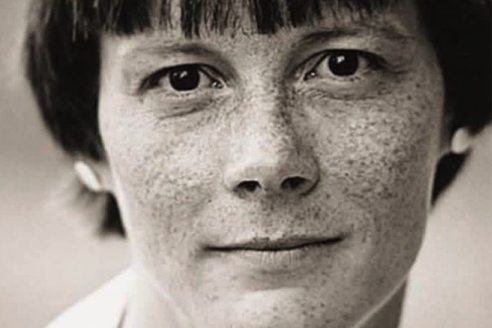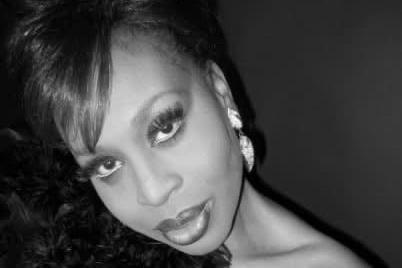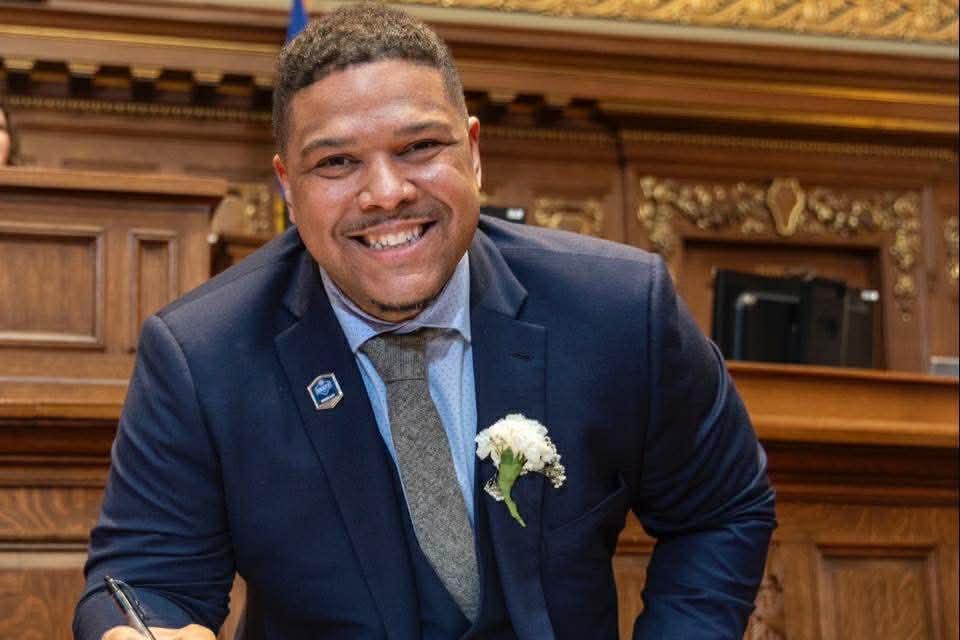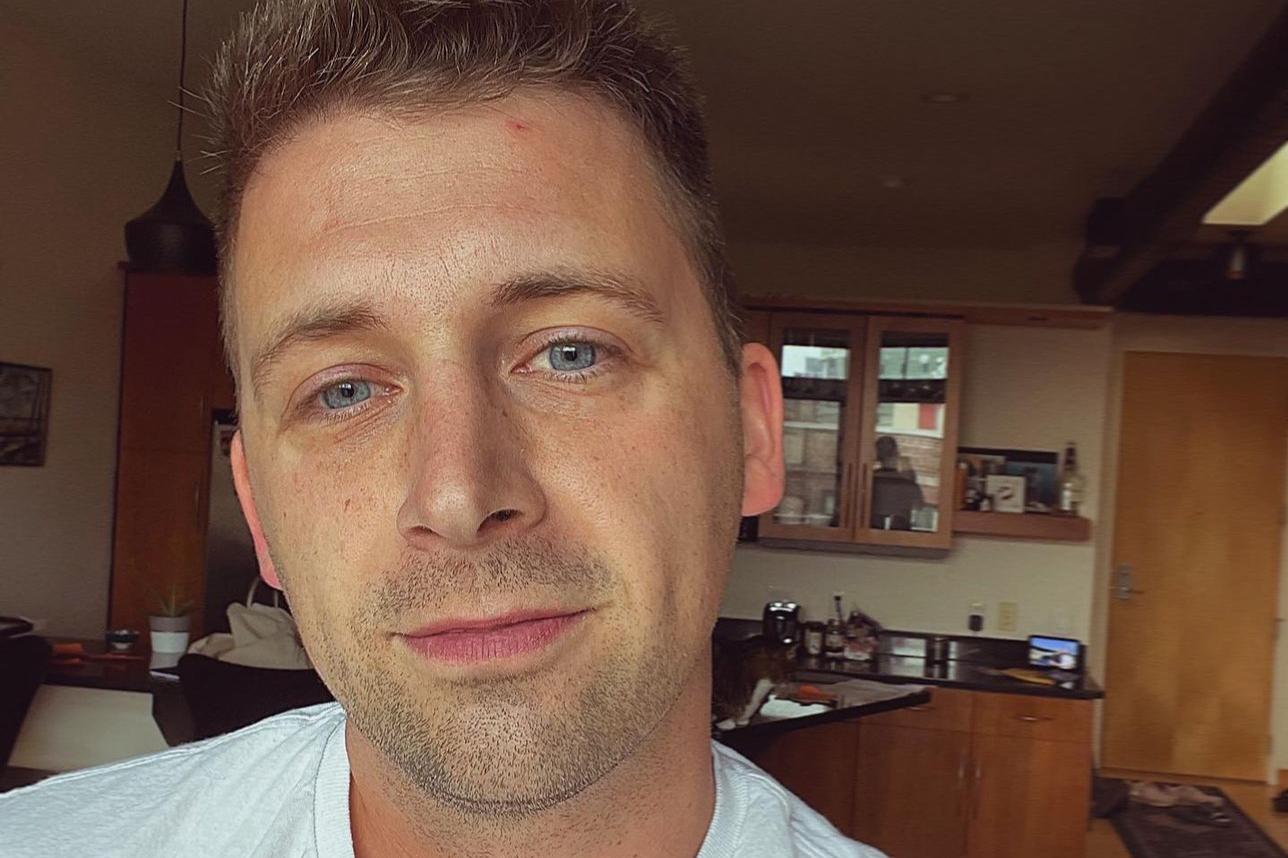
Blaise Keller: there's no right or wrong way to be who you are

"I'm not going to keep shouting my truth at people who really don't want to hear, understand, or accept it."
Blaise is a “boomerang” – he was born in Madison and lived in DeForest until he was eight years old.
He remembers growing up in the countryside, where kids nicknamed him “Frog Boy” and “Bug Boy” because he was always catching creatures. Once, he and his sister found a baby rabbit, and despite them crying and crying, their mother wouldn’t let them keep it. He grew up fascinated by wildlife, nature, and weather.
“Wisconsin is where I really got terrified of thunderstorms,” said Blaise. “Any time there was a storm, I was watching and waiting for a tornado. I thought every thunderstorm was going to create one. And I’d stay up all night to make sure my family was safe, even in a normal Wisconsin thunderstorm."
"I think that Wizard of Oz scene, where she’s flying around inside the tornado, really affected me."
Blaise turned that fascination into his passion, and today, weather is his career. Blaise is now a professional meteorologist working for Channel 3000 and 3 News Now in Madison.
Romance, without being romantic
“I really fell for a fraternity brother of mine in college, and we randomly became friends,” said Blaise. “We started talking about Pokemon, and from that point forward, I always wanted to be around him."
"We were inseparable. It got to the point where we were seen as a pair. If Blaise is here, where’s ____? If he wasn’t hanging out with me, I got possessive and a little paranoid. Did he not want to hang out with me anymore? Who was he hanging out with instead? THAT level of inseparable."
When Blaise graduated, his friend wrote him a note that he still cherishes to this day.
“We cried a lot,” said Blaise, “because it was really sad. But we eventually lost contact, and we don’t talk at all anymore. As far as I know, the first man I ever liked is now married with children and doing great.”
Coming out with confidence
“From a very young age, it was probably written on the wall,” said Blaise. “But then, I had a moment of clarity."
"When I took my first job in Sioux Falls, South Dakota, I found a quote from Shalene Woodley that really affected me. It spoke to her belief that she doesn’t fall in love with the gender of a person, she falls in love with a person. And I realized, okay, that’s me. I remember exactly where I was, at my TV station newsroom, and I was like, this is who I am.”
“That’s where the realization came: I am bisexual. It’s not 50/50 by any means, but I’m still bisexual. It could be 10/90 or 80/20 or whatever, but all that truly matters at end of day is that I’m still bisexual.”
“I knew for a long time, but I didn’t really have the vocabulary or the confidence to talk about it,” said Blaise. “I knew I wasn’t straight, I knew I wasn’t gay. And now, I finally understood there was an option somewhere in the middle. The quote resonated with me so powerfully, I shared it on my social media accounts. It was such a freeing moment, like a huge weight was finally lifted off my shoulders.”
Blaise always suspected his mother knew he wasn’t straight, as well as his really close friends. His father and grandparents took the news well.
“My co-workers simply said, ‘congratulations, you do you!” said Blaise. “And throughout my career, all but one station has been okay with me expressing myself on-air, mentioning my husband, or wearing a pride pin. In Sioux Falls, I’d just broken up with someone, and started dating someone else (who later became my husband.)”
“Only my co-anchor knew I was dating a guy, because Sioux Falls and South Dakota are very right-leaning conservative spaces. Up until that point, our on-air chatter had been very vague, talking about what my friends and I were doing this weekend, and so forth. I didn’t want to diminish my new romance, knowing I wanted to spend the rest of my life with him."
"So, I told my news director I’d no longer be calling him a ‘friend.’ I would accept the pushback. I didn’t care, but I didn’t want her being taken off-guard. And she said, that’s fine. She had a gay brother, so perhaps she understood the pain of hiding yourself.”
“Rochester, on the other hand, was a different experience,” said Blaise. “I asked if I could wear a pride pin during June, and my news director said no. It didn’t feel great. When I came to Madison, I didn’t ask. I just did it. I felt like I’ve been asking long enough, I’m not going to ask anymore. Acceptance for LGBTQ TV personalities has come a long way.”
Silencing the stigmas
“I’ve gotten some unusual questions, but nothing offensive,” said Blaise. “A co-worker once asked me, you say you’re bi, but you’re with a man. How many women have you dated? Do you miss being with women?"
"When I posted a photo of me wearing my bi pin on social media, thanking my network for letting me wear it, to increase representation, I got some surprising reactions. Some people said I was just ‘advertising to find someone else.’"
"I’m not going to keep yelling my truth at people that really don't want to hear, understand or accept it," said Blaise. "You can let hurtful myths have power over you -- or you can take that power away by proving them wrong."
“I remember coming out to someone, and them saying, oh, you’re just gay, you’ll get there eventually,” and I thought, “this is a gay man telling me this."
"For a long time, people thought men liking men was a mental illness. So why would you, knowing that historical experience, put that burden on the bisexual community? Someone else told me I must be gay, because I chose to marry a man over a woman."
"But, again, I didn’t choose my partner for their anatomy. I chose them for who and what they are. And, even though my dating pool is quite wide, I chose them specifically to be mine.”
“It’s interesting, right? Bisexual men are always accused of being on this detour to fully coming out as gay, while bisexual women never get that at all. And what’s the negative of a detour on your way to finding yourself?"
"Why do we need the “it was just a phase in college” excuse? A bisexual woman finding herself is the same as a bisexual man finding himself. Why do we give this pass to women, where sexual identity is this naughty, flirty, sexy thing, while accusing bisexual men of lying to themselves and everyone around them? I don’t get it.”
“Comments like this made me feel like I was kidding myself,” said Blaise, “The connotation is that you really don’t know who you are. I learned there’s no one right way to be gay, straight, lesbian… so there’s no one right way to be bisexual or pansexual, either. You might think you’re doing it wrong, but there’s no real right.”
Education matters
Blaise thinks there’s a tremendous need to educate people about bisexuality and pansexuality.
“I think we are really misunderstood,” said Blaise. “I always say, hey, I like apples, but I’m only eating oranges right now. That doesn’t mean I stopped liking apples. When I explain things this way, it’s a little easier for people to wrap their heads around. If you say you’re bisexual, pansexual, or any sexuality that likes more than one gender, people don’t always understood it because they can’t physically see it.”
Blaise feels the media is doing a much better job of reflecting his truth. Heartstopper, in particular, features a bisexual actor, playing a bisexual character, who is always standing up for themselves.
“I wish I could have seen this when I was younger,” said Blaise. “Growing up in the late 90s / early 2000s, there were hardly any gay people, much less bi people. And if they were bisexual, they were the greedy, manipulative, backstabbing stereotype. I’m glad that it’s beginning to change."
If he could go back in time, what advice would he give “Frog Boy?”
“I’d say, there’s nothing wrong with you. You’re not on an island in the middle of the ocean all by yourself. You will navigate your way, and you will find the confinece to be who you need to be. If you want to date somebody that’s a woman, a man, a non-binary person, that’s fine."
"You don’t have to worry. It will all work out.”
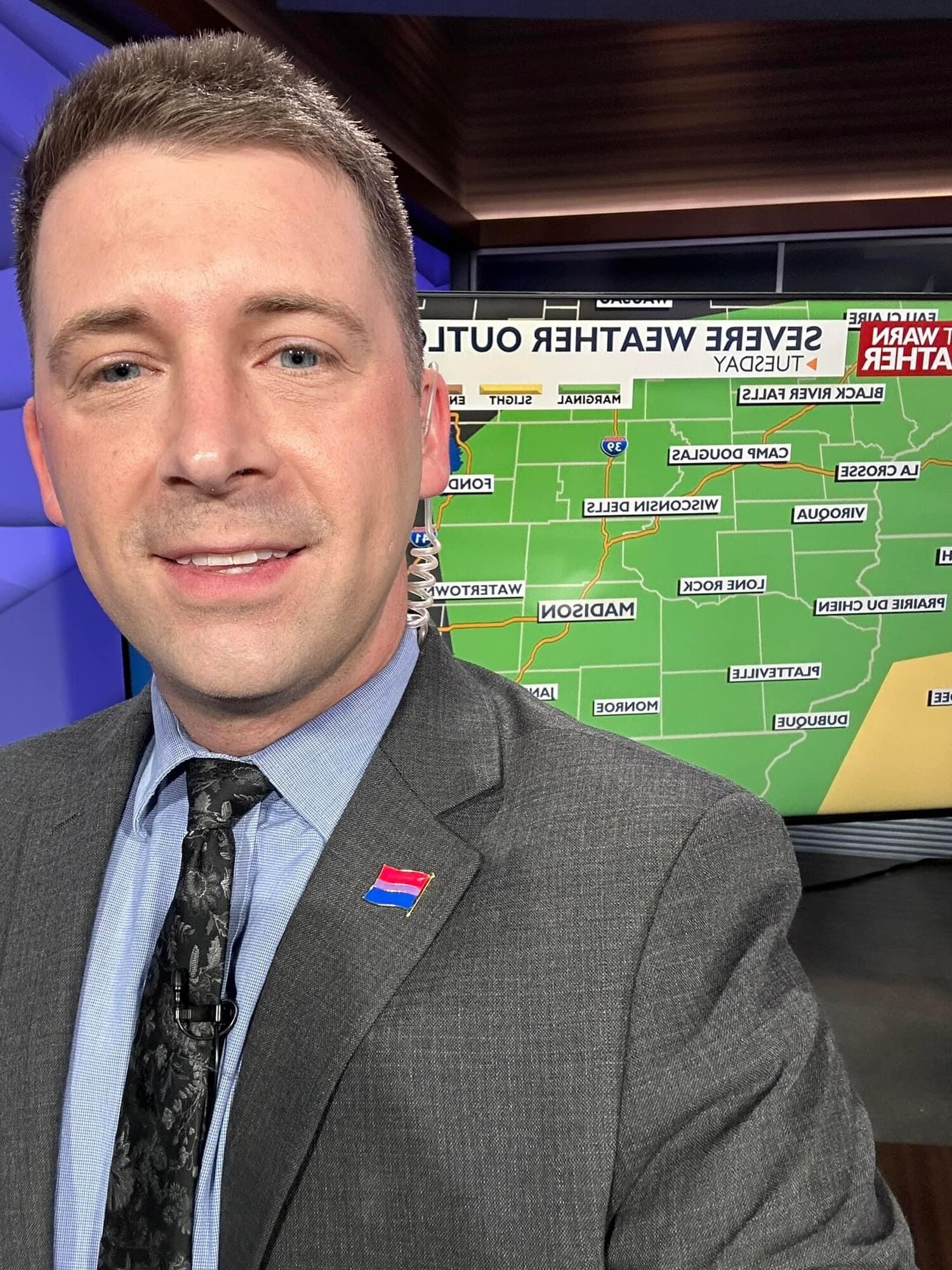 Blaise Keller
Blaise Keller
recent blog posts
March 01, 2026 | Michail Takach
February 28, 2026 | Bjorn Olaf Nasett
February 28, 2026 | Michail Takach
The concept for this web site was envisioned by Don Schwamb in 2003, and over the next 15 years, he was the sole researcher, programmer and primary contributor, bearing all costs for hosting the web site personally.
